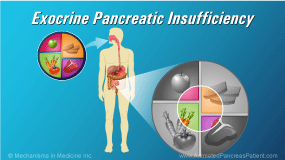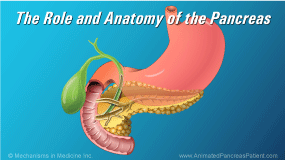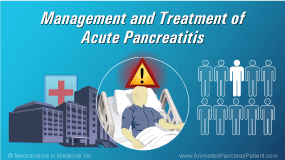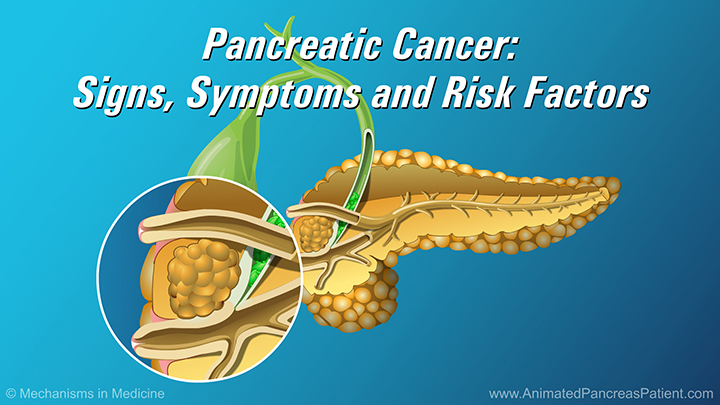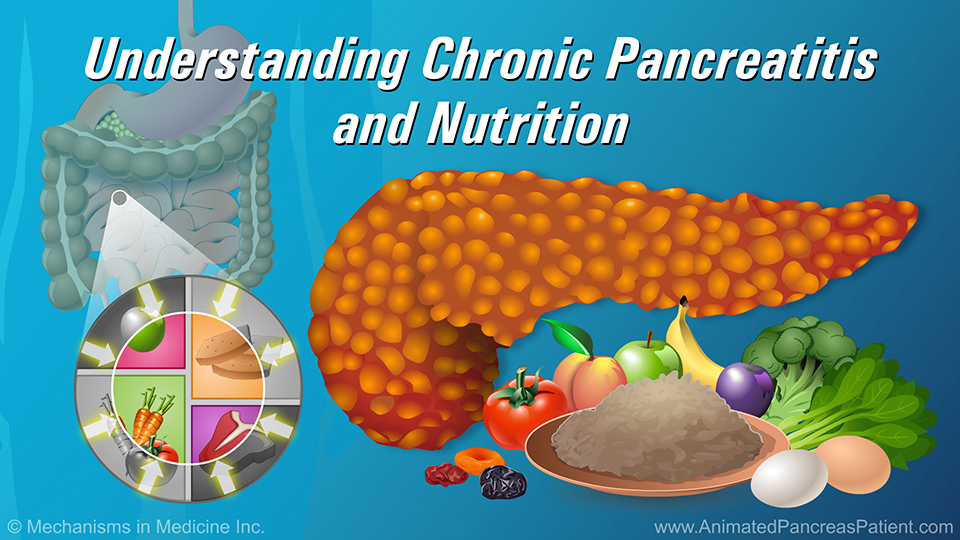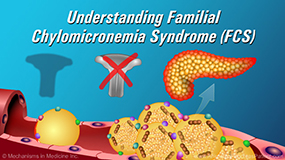Exocrine Pancreatic Insufficiency (EPI)
*Please note: This slide set represents a visual interpretation and is not intended to provide, nor substitute as, medical and/or clinical advice.
The pancreas is an important organ in the digestive system.
The pancreas has two functions: endocrine and exocrine.
Its endocrine function is to produce the hormones that regulate blood sugar, such as insulin.
Its exocrine function is to produce enzymes that help us break down our food so that we can absorb their nutrients.
Exocrine pancreatic insufficiency, or EPI, occurs when the pancreas becomes damaged and is no longer able to produce enough digestive enzymes to properly digest food, particularly fat and protein.
Consequently, people with EPI fail to get nutrition from the food they eat, even if they are eating a balanced diet.
Malabsorption leads to malnutrition and deficiencies in vitamins and minerals.
This can lead to nutrition-related disease such as weak bones, vision problems, easy bruising, and skin rashes. Some people may also have difficulty gaining or maintaining their weight.
Many also have common gastric disturbances (such as diarrhea, bloating, flatulence) and steatorrhea, which is stool that is oily, yellow-streaked, foul-smelling and difficult to flush.
EPI occurs mainly in people who have chronic pancreatitis or an inherited condition that affects the exocrine pancreas, like cystic fibrosis.
EPI is diagnosed using a combination of tests including testing the stool for fat, testing the stool for an enzyme made by the pancreas called fecal elastase, and sometimes stimulating the pancreas with medications to see if it makes the proper amount of hormones.
Since there is no cure for EPI, treatment focuses on managing the symptoms of the disease.
Patients are advised to follow a healthy low-fat diet and avoid high fat foods. They are also prescribed pancreas enzyme replacement therapy (or PERT), vitamins and mineral supplements.
This slide focuses on exocrine pancreatic insufficiency, or EPI, which occurs when the pancreas becomes damaged and is no longer able to produce enough digestive enzymes to properly digest food.
-
Share with family and friends:
Click here to take our SURVEY
Your feedback is important to us! We will use your feedback to develop future areas of content about pancreatic diseases which will help other patients, caregivers and families.

